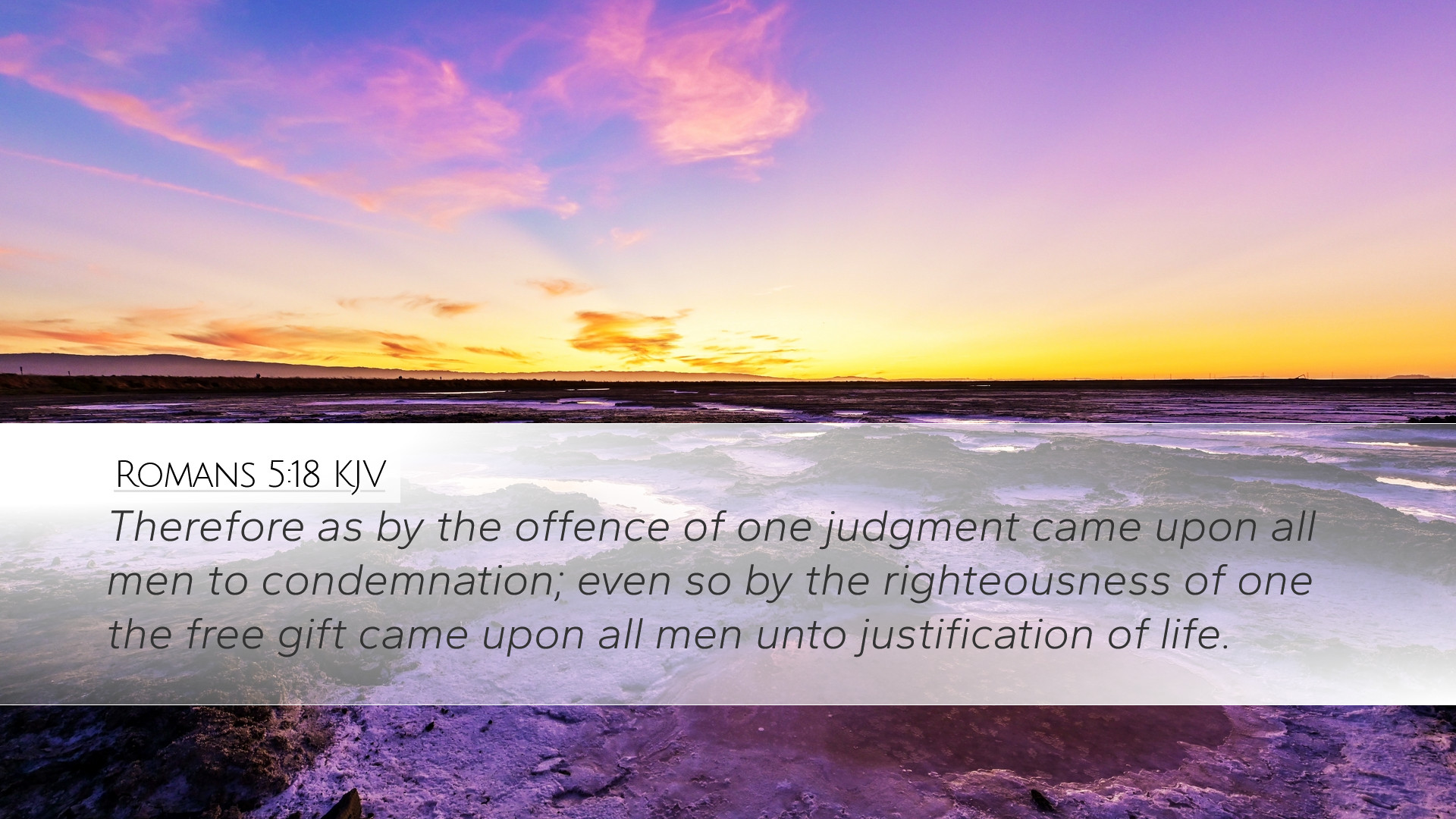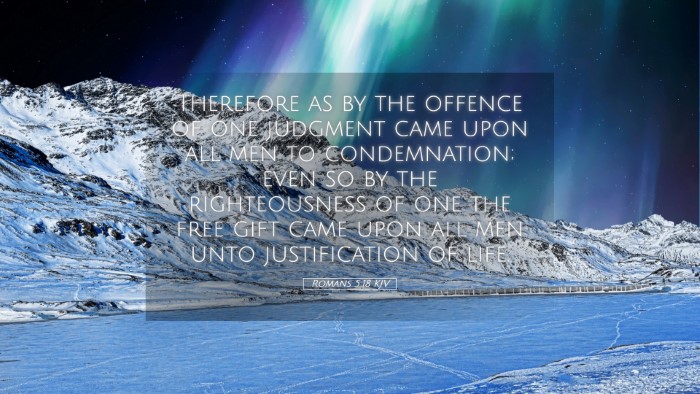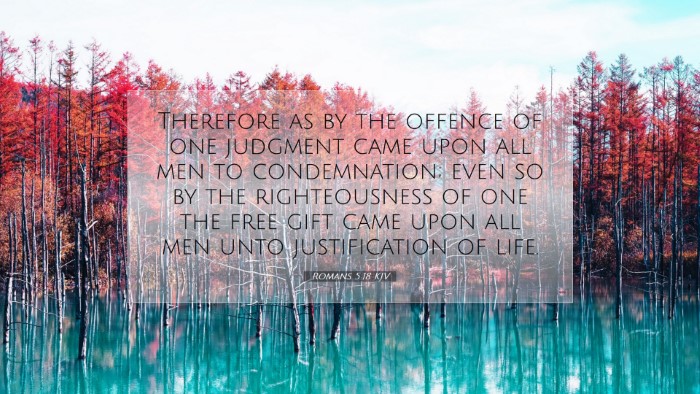Old Testament
Genesis Exodus Leviticus Numbers Deuteronomy Joshua Judges Ruth 1 Samuel 2 Samuel 1 Kings 2 Kings 1 Chronicles 2 Chronicles Ezra Nehemiah Esther Job Psalms Proverbs Ecclesiastes Song of Solomon Isaiah Jeremiah Lamentations Ezekiel Daniel Hosea Joel Amos Obadiah Jonah Micah Nahum Habakkuk Zephaniah Haggai Zechariah MalachiRomans 5:18
Romans 5:18 KJV
Therefore as by the offence of one judgment came upon all men to condemnation; even so by the righteousness of one the free gift came upon all men unto justification of life.
Romans 5:18 Bible Commentary
Commentary on Romans 5:18
Verse Overview: Romans 5:18 states, "Therefore, as through one man's offense judgment came to all men, resulting in condemnation, even so through one Man's righteous act the free gift came to all men, resulting in justification of life." This verse encapsulates a core tenet of Christian theology, highlighting the contrast between Adam's sin and Christ's redemptive act.
Contextual Analysis
This passage emerges from a broader discussion in Romans 5 concerning the theological implications of Adam's sin and Christ's righteousness. Paul carefully constructs a parallel between the two figures—one representing the origin of sin and condemnation, the other representing the source of grace and justification.
Theological Implications
1. The Nature of Sin and Its Consequences: Adam's disobedience resulted in sin entering the world, thereby affecting all humanity. Matthew Henry emphasizes that Adam's fall brought about a universal condition, where all are born with a predisposition to sin. This inherent sinfulness leads to judgment and condemnation, establishing the need for redemption.
2. The Free Gift of Righteousness: In contrast, Albert Barnes notes that Christ's righteous act—the crucifixion and subsequent resurrection—provides a remedy for the sin introduced by Adam. The term "free gift" elucidates that justification is not achieved through human merit but is bestowed upon believers through faith in Christ. This highlights the grace of God as the foundation of salvation.
Comparison of Adam and Christ
1. Adam as the Federal Head: Paul makes a clear distinction that Adam's action had repercussions for all humanity, establishing him as the federal head of the human race. Adam's sin resulted in death (both physical and spiritual), aligning with Clarke's commentary, which discusses the ramifications of Adam's choice causing separation from God.
2. Christ as the Redemptive Head: On the other hand, Christ, through His obedience, provides a means to overcome the consequence of sin. This act of righteousness—His life, death, and resurrection—offers justification to those who believe. As Henry elaborates, this transformative act restores the relationship between humanity and God, offering life instead of condemnation.
The Universality of Condemnation and Justification
The mention of "all men" in this verse speaks to the totality of both condemnation due to Adam and justification offered through Christ. Barnes explains that no one is exempt from the fall; similarly, no one is denied the opportunity for justification. This equality underscores the universal nature of God’s plan for salvation.
Practical Applications
- The Assurance of Salvation: Understanding that justification is a free gift provides believers with assurance and peace. This can inspire pastors to preach hope and the tremendous love of God toward sinners.
- Evangelism: Emphasizing the universal need for salvation encourages believers to share the gospel faithfully, as it addresses the condition of all humanity while offering the solution—Christ.
- Discipleship: Knowing that believers are justified not by works but through faith in Christ fosters a culture of grace within the church, allowing for growth in holiness and community.
- The Nature of Sin: This passage can help students and scholars comprehend the depth of the doctrinal understanding of sin, guilt, and the justification offered through Christ, which is foundational for systematic theology.
Conclusion
Romans 5:18 presents a profound theological treatise on sin and redemption, contrasting the effects of Adam's disobedience with the grace offered through Christ. This verse not only serves as a reminder of the dire state of humanity but also highlights the boundless grace of God that justifies and reconciles believers to Himself. As such, it is a cornerstone for understanding the doctrine of salvation and the work of Christ.
In reflecting on this scripture, pastors, students, and scholars are encouraged to deepen their understanding of both the nature of sin and the glorious gift of grace. The transformative power of Christ's act should compel the church to engage more fully in both personal and corporate expressions of faith and outreach.


